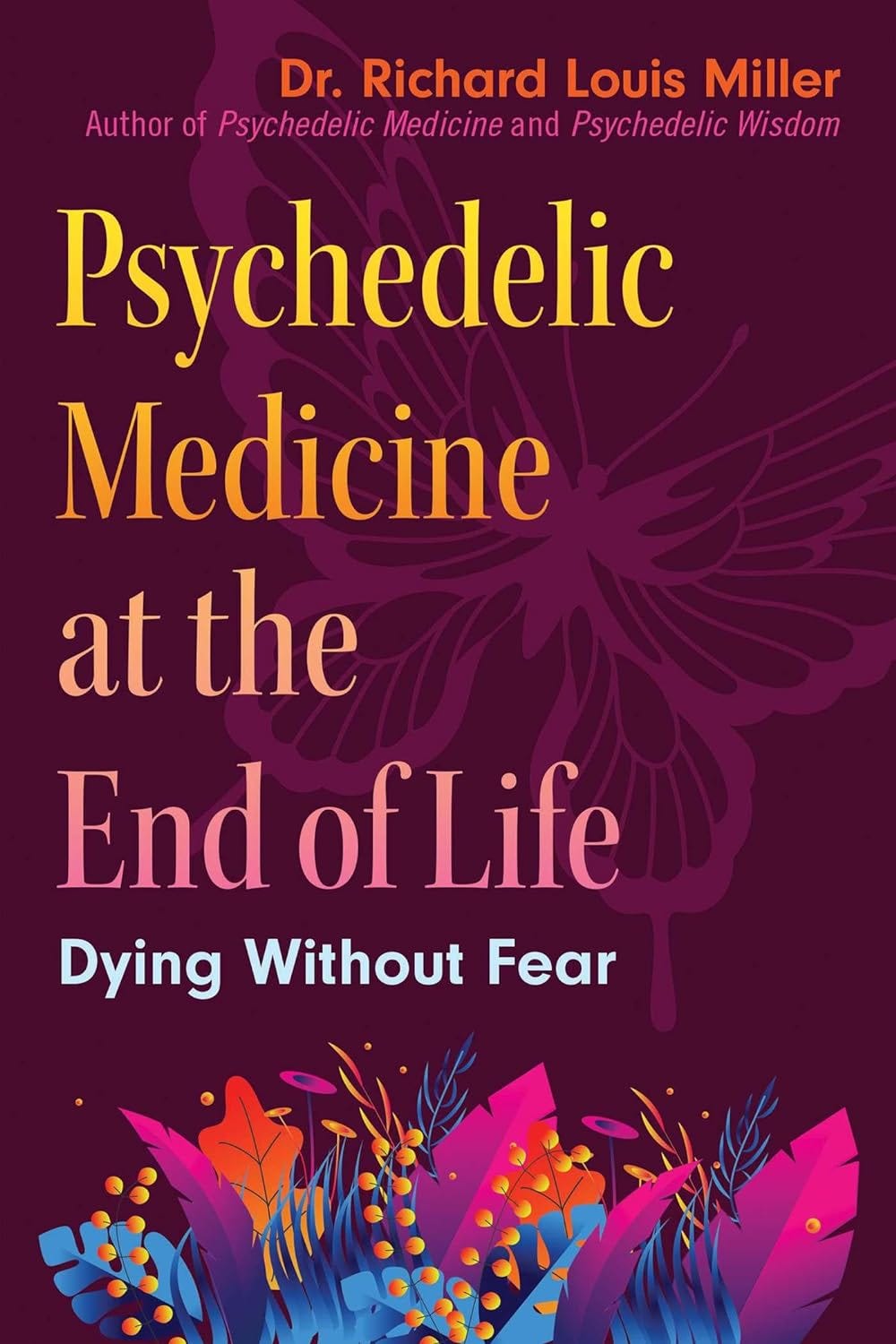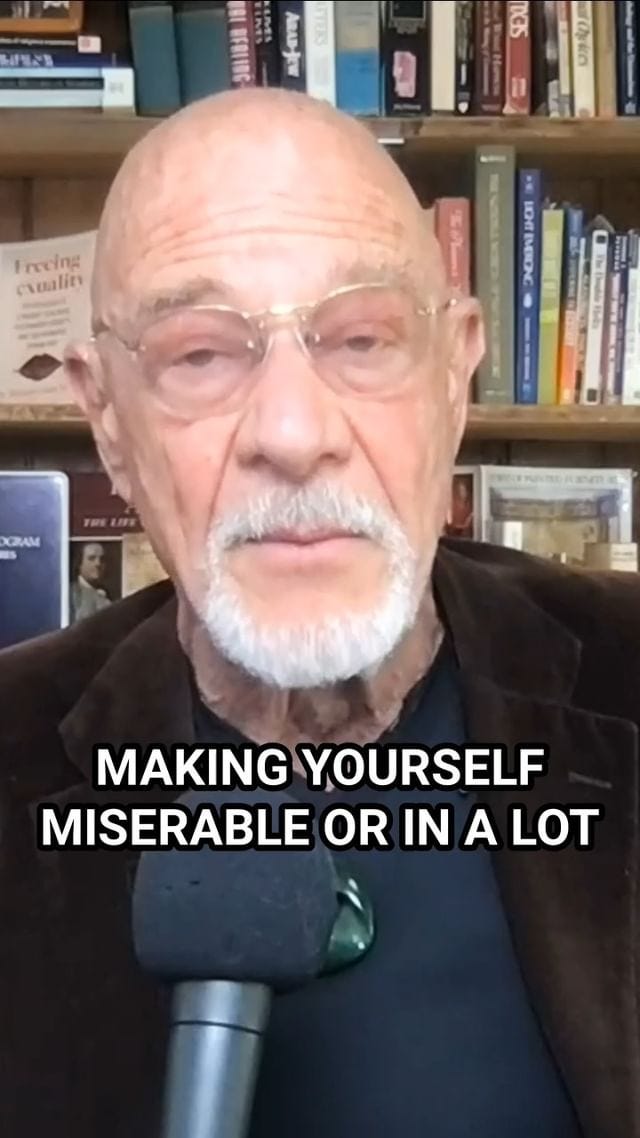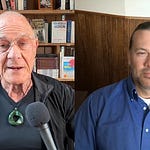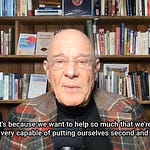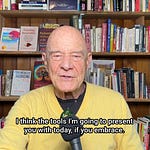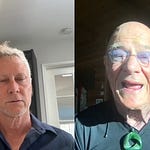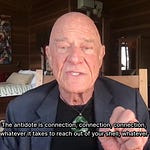Dear Friends,
In the early 1980s, as a clinical psychologist, I had a remarkable experience as a patient of Dr. Robert Cantor, the founder of the Pacific Graduate School of Psychology. He legally administered MDMA to me over a period of a year and a half, and the benefits were profound. My heart opened, my empathy increased, and my defenses lowered.
At the time, therapists across the United States were reporting amazing results using MDMA with couples, claiming they achieved more progress in a few sessions than in years of traditional therapy.
However, in 1985, amid growing concerns about recreational use – as well as misinformation about its neurotoxicity – the Drug Enforcement Administration (DEA) emergency scheduled MDMA as a Schedule I substance, effectively banning its use for any purpose, including medical research.
Around that time, Dr. Rick Doblin, founder of the Multidisciplinary Association for Psychedelic Studies (MAPS), went before the government to seek approval for MDMA's medicinal use. Despite promising early research, the FDA rejected his proposal. Now, 39 years later, MAPS and its spinoff Lykos Therapeutics are still fighting for approval, only to face a significant setback this week.
An FDA governmental advisory committee voted 10-1 in favor of advising against recommending that MDMA be approved as medicine by the FDA in its upcoming August meeting. This decision comes after decades of rigorous clinical trials that have demonstrated MDMA's potential as a catalyst for psychotherapy in treating post-traumatic stress disorder (PTSD) and other mental health conditions. There is still a remote chance that the FDA will vote against its own advisors.
The government's main reason for this denial is that current MDMA studies fail to meet the gold standard of medical testing: the double-blind study. In this design, neither the administrators nor the patients know if they are receiving the actual medicine or a placebo. The FDA argues that a high percentage of subjects quickly determine whether they are in the placebo or experimental group based on the powerful effects of MDMA, compromising the study design.
However, this reasoning is flawed.
While the double-blind issue is valid, it should not be grounds for disqualification, especially when the medicine is demonstrably effective in approximately 80% of cases. The core question should be whether the positive effects are due to the medicine itself or a placebo effect enhanced by patients' awareness that they have received the active drug. In my view, this distinction is less important than the fact that patients are experiencing real benefits. If both the medicine and placebo effects are contributing to positive outcomes, that should be celebrated, not penalized.
The government's position appears to be clouded by the emotional stigma surrounding MDMA as a "party drug," despite the fact that many substances have both therapeutic and recreational applications. This bias should not prevent MDMA from being used as a powerful catalyst in a professional therapeutic context, where it could potentially help hundreds of thousands, if not millions, of people.
Ultimately, the government's role should be to prioritize the wellbeing of its citizens and support interventions that can provide the greatest benefit to the most people. Allowing emotion and politics to override scientific evidence and real-world therapeutic outcomes is a disservice to public health.
The fight for MDMA therapy is not over, but the struggle has already spanned four decades. It is time for the government to adopt a more nuanced, compassionate approach and allow this promising treatment to become accessible to those who desperately need it.
Golden light,
Dr. Richard Louis Miller
Show Notes
Patients with terminal illnesses often face debilitating anxiety, depression, and existential distress
Psilocybin therapy has shown remarkable potential to alleviate end-of-life suffering in clinical trials
"Right to Try" laws in over 40 states allow access to experimental drugs for the terminally ill, but the DEA is blocking access to psilocybin
Dr. Sunil Aggarwal, a Seattle palliative care physician, is fighting a landmark legal case to win psilocybin access for his dying patients
Some patients resort to underground psychedelics out of desperation; clinical psilocybin therapy would be far safer and more beneficial
The case pits the DEA's scheduling of psilocybin against state laws and patient autonomy at the end of life
Eight states and D.C. have filed amicus briefs supporting Dr. Aggarwal's case, arguing the DEA has overstepped
A summer decision from the Ninth Circuit Court of Appeals could be a pivotal moment for psychedelic medicine
The case highlights the need for a more compassionate, integrated approach to end-of-life care that addresses spiritual and existential dimensions
Responsible, mindful use of psychedelics may help change both how we live and how we approach death
Links and Resources
Organizations:
MAPS (Multidisciplinary Association for Psychedelic Studies)
Lykos Therapeutics (MAPS spinoff company
Concepts:
A Page from My Book
The following is an excerpt from Chapter 2 of my forthcoming book, Psychedelic Medicine at the End of Life, now available for pre-order on Amazon.
There are certain topics that are career killers in academia—taboo subjects that threaten the established order. For Professor Ernest Hilgard, a renowned psychologist at Stanford University in the mid-twentieth century, hypnosis was one such subject.
When I was in graduate school in Michigan, Hilgard visited and gave a lecture on hypnosis.
After the lecture, I asked him, “For most of your career, you were studying rats, and just in recent years, you started researching hypnosis. How did that come about?”
He replied, “It was simple. If I had started with hypnosis right away, I wouldn’t have had a career. I waited until I was a full professor, and after I was tenured I was able to pursue my real interests.”
This cautionary tale has stayed with me for over half a century. When I first took the Morning Glory seeds containing LSA in 1965, I understood its profound potential—not only for healing and extinguishing my fears around death and dying but also for personal growth and creativity.
However, I also understood that embracing this insight could end my career before it even began. Psychedelics were taboo and for good reason: they threatened to upend centuries-old assumptions about the mind, the self, and human consciousness. Collectively, we are bound by death. Death grips us with fear, and we grip back at it. It seems that on top of our fear of death, there is another fear of losing our fear. To some, being free of the fear of death sounds frightening.
So, like Hilgard, I waited.
Instead of pursuing my interest in psychedelics as a researcher, I channeled my energy into political activism. Specifically, I advocated for what I believe to be a constitutional right—the right to ingest anything I want in the privacy of my own home, so long as I do not harm another person.
As an activist, I supported organizations such as the Multidisciplinary Association for Psychedelic Studies (MAPS), founded by Rick Doblin; the Drug Policy Alliance (DPA), founded by Ethan Nadelman; and the Marijuana Policy Project (MPP), founded by Rob Kampia; and the National Organization for the Reform of Marijuana Laws (NORML), founded by Keith Stroup. I served as a fundraiser for these organizations and had the privilege of sitting on the National Board of Directors for the MPP.
For over fifty years, I observed how the United States government stigmatized psychedelics through propaganda, disinformation, fear, and the threat of prosecution. I have witnessed lives being ruined by misguided laws. For over fifty years, I waited for the cultural winds to shift and for institutions to open their doors again to legitimate scientific exploration of these extraordinary substances. The present revival of psychedelic research has been a long time coming, and, at last, the Dark Ages of scientific suppression appear to be possibly ending. I say “possibly” because even marijuana possession is still a federal crime and I doubt I will live to see the legalization of LSD, which is arguably the most beneficial psychedelic substance.
This shift is happening in no small part due to the new approach being taken by psychedelic researchers, prioritizing medical and psychological research to alleviate various physical and mental health conditions.
This new era of psychedelic science is confirming what I, as well as many others, learned over fifty-five years ago: that these novel medicines have the potential to revolutionize our understanding, and treatment of the human mind and to facilitate creativity. The experiences I had in the 1960s now have the support of numerous clinical trials and brain scans. There are discoveries to be made and lives to transform.
The future of these substances is bright if we have the courage and wisdom to follow where they lead us. However, we have only just begun to understand the promises and potential perils of psychedelics.
My Other Books
Freeing Sexuality: Psychologists, Consent Teachers, Polyamory Experts, and Sex Workers Speak Out
Psychedelic Wisdom: The Astonishing Rewards of Mind-Altering Substances
Psychedelic Medicine: The Healing Powers of LSD, MDMA, Psilocybin, and Ayahuasca
Integral Psychedelic Therapy (co-edited with Jason A. Butler & Genesee Herzberg)
Event: Can Ancestral Medicines Heal Humanity?
Is there a place for ancestral wisdom in the Psychedelic Renaissance?
Register for the open-access Plant Spirit Summit (June 23-29, 2024) and join me and 80+ experts and community leaders in a series of bold conversations on the essential role that ancestral medicines play in the Psychedelic Renaissance. Topics include:
Ancient Medicine for Modern Times: the Vital Role Ancestral Medicines Play in the Psychedelic Renaissance
Ceremony as a Service: Exploring the Landscape of Facilitated Psychedelic Experiences
Overcoming Ethnoracial Barriers to Participation in the Psychedelic Renaissance
How to Uphold Ethics, Boundaries, and Consent in Psychedelic Therapy
In 7 immersive days, you can access interviews with experts and indigenous wisdom keepers, live panels discussing emerging trends in the psychedelic sector, and short films and documentaries exploring indigenous culture and plant medicines - at no charge.
Click here to Register for The Plant Spirit Summit on June 23-29, 2024



